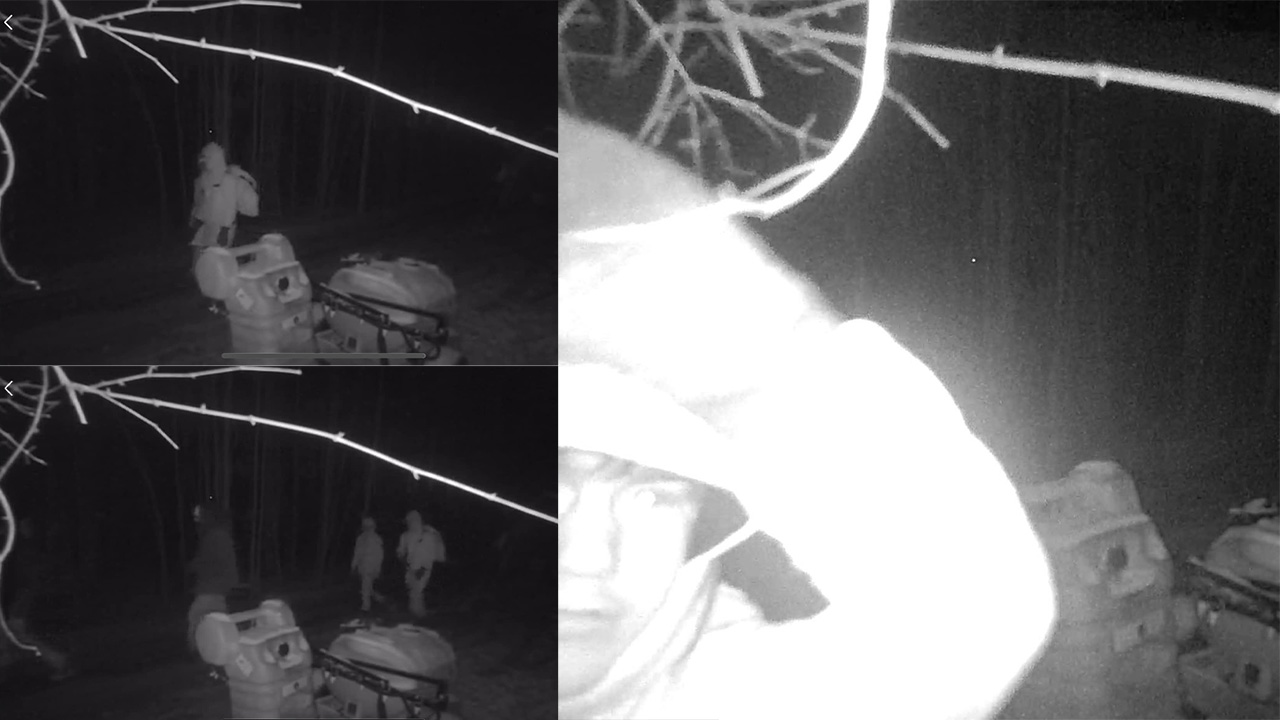I contracted a ‘silent killer’ virus in a grave medical error which gave me cancer 34 years later
ALASTAIR In July 2024, Cook received the news that his liver cancer was terminal.
A’silent killer’ virus he contracted during a horrific vehicle accident nearly forty years prior was the reason of his tragic diagnosis.
In 1981, the 67-year-old from Bishop’s Stortford, Hertfordshire, who was employed as an exploratory geologist in Kuwait’s oil business, had hepatitis.
Alastair was taken to the hospital and given a blood transfusion after being in an accident that left him with potentially fatal injuries.
He then learned that the blood used had been tainted with hepatitis C, a virus that, if unchecked, may seriously harm the liver.
After contracting hepatitis C, many individuals won’t have any symptoms for months or years, but over time, it can cause cirrhosis, or liver scarring, and liver cancer, which can be deadly.
Read more on liver cancer
For this reason, it is frequently referred to as a “silent killer.”
Alastair participated in experimental pharmacological studies and received treatment for hepatitis C over the next 34 years.
He was given only six to nine months to live after liver tumors were discovered.
Immunotherapy, which Alastair is receiving, he claims will only prolong his life by a few months rather than completely remove the cancer.
Regarding his diagnosis, he is straightforward, stating: “There’s nothing much I can do.”
However, he is recommending that everyone who believes they may be susceptible to the virus get tested.
The Infected Blood Scandal
Alastair tells Sun Health, “The sooner they pick it up, the sooner they can get rid of it.”
Sharing syringes or needles when injecting drugs is the most prevalent way that hepatitis C is transmitted in the UK.
In addition, it can be transmitted by piercing needles, razors, and unprotected intercourse.
Some people did contract the virus from blood transfusions in the past.
The British Liver Trust encourages anyone who received a transfusion abroad or in the UK prior to 1991 to request a hepatitis C test from their physician, even though all blood transfusions in the UK have been screened and are safe.
Ninety percent of hepatitis C patients may be cured thanks to recent advancements in treatment.
Following the release of NHS data showing a 5.4% increase in liver cancer cases in England between 2020 and 2022, Alastair spoke with SunHealth.
According to Liver Cancer UK, the incidence of liver cancer has increased by 42% in the UK over the previous ten years.
According to the organization, there has been an increase in liver cancer-related deaths, with about 5,800 deaths reported annually.
“We cannot ignore this rising tide of liver cancer,” says Vanessa Hebditch, head of policy at the British Liver Trust.
Most persons who are diagnosed with liver cancer will have an underlying liver problem, and liver cancer is frequently preventable.
“Improving liver health and surveillance of people with liver disease is vital to reduce the number of people losing their lives to liver cancer.”
‘I thought I was going to die’
The oil sector was “starting to take off” when Alastair received his degree in Geological Sciences from Birmingham University.
After completing his training in Dallas, Texas, Alastair recalls working as a contractor for oil service businesses “basically all over the place” in Bahrain, Saudi Arabia, Greece, Norway, Nigeria, and Libya.
“You would be switched from one nation to another at any time. He continues, “It was living out of a suitcase.”
“Loads of money, loads of time off, having a good time” is how Alastair summed up those years.
He was employed as an exploration geologist in Kuwait in 1981, working on the deepest oil well ever sunk in the region.
From their staff residence in town to the oil rig in the desert, the Kuwait Oil Company had made arrangements for its workforce to be driven back and forth.
“That was happening every 12 hours and the driver was working both ends of the clock and moonlighting in between, so he was overly tired,” said Alastair.
On the evening of April 24, 1981, the driver fell asleep behind the wheel when he was being driven to the oil rig.
“He went off the road in the desert – there wasn’t tarmac, there was just sand,” Alastair recounts.
“I ended up below the automobile after it flipped five times. At that moment, I genuinely believed I was going to die.
“I was trapped by the car so I was trying to crawl out but I couldn’t move.”
When locals arrived at the scene of the collision, they were able to remove the automobile off Alastair and pull him from the debris.
“We crashed between the police station and the hospital, which is probably the only reason I survived,” he claims.
Alastair was sent to intensive care after suffering extensive burns and injuries, including a punctured lung, two broken ribs, and four shattered vertebrae. The driver was killed in the collision. Four quarts of blood were also lost by him.
After receiving a blood transfusion, it was discovered that the hospital’s blood was tainted with hepatitis C.
According to him, the US provided the hospital with the contaminated blood supplies by paying high-risk blood donors, including drug users and convicts, to donate.
It wasn’t until he was flown back to the UK five weeks later that he learned about hepatitis C and the fact that he had been given tainted blood.
Alastair explains, “The exhaust pipe had burned a big hole in my back.”
“As they prepared to perform a skin graft, they discovered that I had hepatitis and was experiencing jaundice.
“They couldn’t do the skin graft because of the hepatitis.”
The scar took four months to heal, but he remained in a London hospital for a few more weeks.
‘A straw that breaks the camel’s back’
Alastair’s fight against hepatitis C was only getting started.
Before going back to the UK to work as an IBM computer dealer, he spent a few more years in the oil business, managing eight divisions for a Saudi oil corporation.
Later, in the early 2000s, Alastair opened his own photography studio before accepting a job as an administrator at a school.
He was receiving health monitoring throughout this time, and in 1984, he received a testicular cancer diagnosis.
“They didn’t know whether to treat the hepatitis first or the cancer,” Alastair says.
Alastair participated in several hepatitis C medication trials and had surgery to remove the cancer.
What is hepatitis C?
The virus that causes hepatitis C is spread by coming into touch with contaminated blood.
If left untreated, it can seriously harm your liver and leave you feeling very ill.
Damage from hepatitis C over several years might result in liver cancer or cirrhosis.
With the use of pills, over 90% of hepatitis C patients may now eradicate the infection.
It has been discovered that these novel hepatitis C medications shorten treatment durations, improve treatment efficacy, and are simpler to tolerate.
Even though you may have hepatitis C for years before you experience any symptoms, liver damage can be avoided with early treatment.
Your liver may become rough and scarred if the virus is left untreated because it can cause inflammation. Fibrosis is the term for this.
The damage might accumulate over time. Serious liver conditions like cirrhosis or liver cancer may result from this.
Hepatitis C symptoms
After first being infected with hepatitis, most people will have no symptoms but some might experience:
- Fatigue
- Loss of appetite
- Feeling or being sick
- Fever (high temperature over 38C)
- Stomach ache
- Muscle or joint aches and pains
- Jaundice (a yellow colour to your eyes or skin)
Some can get rid of the virus without any treatment, but if you still have the virus six months later this is called “chronic hepatitis”.
Many people only find out that they have hepatitis C once they start to get symptoms of liver disease.
These symptoms include:
- Feeling very tired
- Itchy skin
- Feeling sick
- Joint pains
- Stomach ache and bloating
- Mood changes
- Brain fog and memory problems
- Jaundice (a yellow colour to your eyes or skin)
Source:British Liver Trust
“My way of looking at it was, if they do find a drug and it becomes too expensive, it will take NICE an awfully long time to approve it,” he says.
“So I’m better off going on the trials, in which case if it cures it, I’ll be buying time.”
He adds: “Outwardly, I was fairly good.
“Hepatitis is a bit like a straw that breaks a camel’s back.
“You’re okay to the point where the liver doesn’t function and all of a sudden you shut down.”
Alastair went on three sets of 48-week treatments for interferon medications, which used to be standard treatments for hepatitis C.
He recalls: “It was pretty horrendous to start with. Your immune system would go down to virtually zero.
“You had to try and isolate yourself and you were injecting yourself in the stomach twice a day for 48 weeks.
“You felt like crap, basically.”
Alastair adds: “Nowadays, hepatitis C is far more treatable than it was when I first started.”
But he warns: “A lot of people have got it and don’t know they’ve got it.”
Due to having hepatitis C, Alastair was having his liver monitored by ultrasound every six months – which is how he found out he had liver cancer.
Doctors spotted a small tumour in his liver in November last year, which was removed.
But as more tumours emerged following the procedure, Alastair received a terminal diagnosis in July 2024 and was given just six to nine months to live.
The 67-year-old says he isn’t eligible for a liver transplant due to blood clots forming in his portal vein, which carries blood from organs in the abdomen to the liver.
What are the signs of liver cancer?
The most common types of liver cancer in the UK are hepatocellular carcinoma (HCC) and bile duct cancer.
With early HCC, you may not have any symptoms.
As the cancer advances, symptoms may be quite vague, especially if you already have symptoms from other liver disease, such as hepatitis or cirrhosis.
You may just find you:
- Feel sick
- Have no appetite, or feel full after eating very little
- Lose weight without trying
Other symptoms may include:
- Tummy pain
- Abdominal swelling
- Feeling generally unwell and lacking in energy
- Pain in your right shoulder because the enlarged liver is irritating nerves that supply the shoulder
- Jaundice
As for bile duct cancer, you may again get vague symptoms like feeling sick or loss of appetite.
If the cancer blocks bile ducts, you may develop jaundice.
You may also have
- Itching
- Dark wee
- Pale, putty coloured poo
- Flu-like symptoms of muscle aching, fever and tiredness
Source:Liver Cancer UK
He’s currently undergoing immunotherapy treatment every three weeks.
Alastair says he now feels “accepting” of his situation.
“There’s nothing much I can do,” he explains.
“I am having immunotherapy, but that’s only going to delay it. It’s not going to change the outcome.”
He adds: “I’ve kind of been expecting it for 40 years.”
His wife Denise, 71, on the other hand, “never quite believed [him], so it was more of a shock for her”.
“My wife thinks I’m unemotional, but I’m a realist,” Alastair says.
“I’m slowly coming around to my diagnosis.”
Plea to get tested
Alastair is urging anyone who thinks they might be at risk of hepatitis C to get tested for it.
“The sooner that they pick it up, the sooner they can get rid of it,” he says.
“So if it can be done in three months, you’ve got 34 years of liver damage that you can avoid.”
Hepatitis C is picked up through blood tests.
Read More on The US Sun
If you have the virus, you’ll be given anti-viral tablets to take for eight to 12 weeks.
It s really important to finish the course, to make sure the infection goes away completely.
Note: Every piece of content is rigorously reviewed by our team of experienced writers and editors to ensure its accuracy. Our writers use credible sources and adhere to strict fact-checking protocols to verify all claims and data before publication. If an error is identified, we promptly correct it and strive for transparency in all updates, feel free to reach out to us via email. We appreciate your trust and support!














